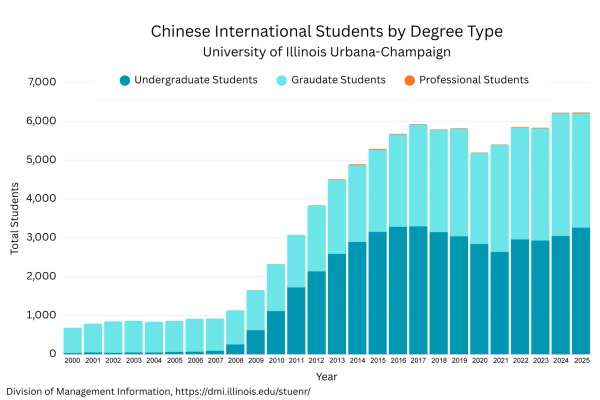Stepping in the right direction
Sep 11, 2007
Most upperclassmen remember the incident which happened a year ago regarding an exchange between Delta Delta Delta Sorority and Zeta Beta Tau Fraternity. Rallies were held, apologies were made and punishments were served. Though some of the students on campus may think that more could have been done, the incident was addressed and I am not going to bring up “old news” by discussing it further. Freshmen or other readers who don’t remember the incident can search the Daily Illini online archives (Dec. 8, 2006) for more information. But in the wake of the uproar caused by the “fiesta”-themed exchange (also known as “Tacos and Tequila”), the University pledged to take the necessary steps to bring cultural tolerance and education to campus. What it brought was Inclusive Illinois.
The Chancellor’s One Campus Initiative (Inclusive Illinois) is an effort intended to unite the campus by appreciating diversity and increasing cultural tolerance. Though I have some criticisms of the program, I believe it is taking the necessary proactive steps toward the University’s goal of higher levels of diversity. For those of you who didn’t read the very long e-mail sent out on Aug. 25, or the Daily Illini article written about it, the initiative hosts programs focusing on issues of race, gender, sexuality and every other category people are grouped in. One Campus states it will bring keynote speakers and forums to discuss these issues on campus. Presently, the initiative is more aesthetic than functional.
On the Web site of Inclusive Illinois (http://www.inclusiveillinois.uiuc.edu/) you can learn about it more in depth, sign the commitment statement, see the upcoming events and review the different resources provided by the University, including an anonymous hotline used to report acts of intolerance. I signed the commitment statement and then looked for the next event to attend. When scrolling through the listed activities I realized most of the things listed didn’t originate from the One Campus Initiative to promote diversity but rather were functions imported from the various minority houses around campus that only catered to their respective constituencies.
Instead of having programs which aimed to educate people, this Initiative only seemed to showcase events hosted by minorities, as if stating “we do have minorities attending this institution.” There are a few keynote speakers listed to discuss various topics but these lectures, that actually do address the issues the University is aiming for, aren’t mandatory for students to attend. The only students who would want to hear these lectures are already open to the idea of tolerance and thus less likely to commit acts of intolerance. Though it is very difficult to get college students to attend anything, the University could implement a program similar to the rape education classes that freshmen are forced to take.
Some people think that whole effort is a waste of the University’s time and resources. Some of these people think that diversity is an organic process that can only be achieved involuntarily. But what some of these people fail to acknowledge is consciousness of efforts like the Civil Rights Movement. If it wasn’t for the deliberative actions of the movement’s followers and leaders, I probably wouldn’t be writing this column or attending this school. I am not trying to compare the “fiesta” exchange to the atrocities of pre-1960 segregation or the One Campus Initiative to the Civil Rights Act of 1968, but I am saying that issues of diversity are in constant need of attention. People have to make mindful decisions to actively promote diversity and discourage acts of prejudice. One Campus is making an attempt to do that.
Get The Daily Illini in your inbox!
With all the criticisms that I do have, I will acknowledge the attempts of the University. The effort by itself is commendable. If Inclusive Illinois continues to evolve and is taken mildly seriously, the results can only be beneficial to the University, its public appearance and its students. This program is taking the necessary steps toward continued diversification, even if those steps are baby steps.





